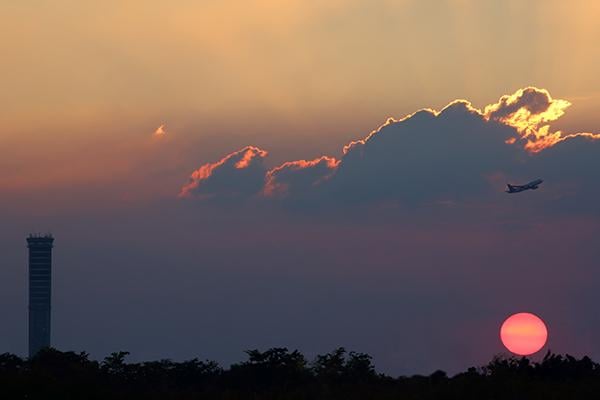EDITORIAL: Aviation’s Focus On Efficiency Misses The Big Environmental Picture

Commercial aviation has made huge strides in environmental efficiency, but is the industry prepared for a shift in focus to gross emissions?
Eco-efficiency has become a go-to marketing topic, particularly for European LCCs like Ryanair. “We can grow traffic while reducing our impact on the environment,” Ryanair said in early November.
It is true that Ryanair’s Boeing 737 MAXs are more environmentally efficient than their predecessors, emitting fewer CO2 emissions per ASK. However, simple math shows that if the total number of flights goes up, that efficiency gain does not translate into fewer overall emissions.
Aviation emissions are growing and the industry will be held accountable. Any attempts to disguise this truth with claims of better efficiency will ultimately backfire, fueling aviation’s eco-storm.
How will future historians feel about sectors that pursued aggressive growth while knowingly increasing their environmental impact? How much effort toward future eco-initiatives will it take to excuse that growth?
A new conversation is starting and it will grow in volume over the coming months.
“We are, at the end of the day, a net emitter of carbon and we can’t continue to do that,” Airbus head of airline marketing-Africa and Middle East Andrew Armitstead told delegates at a recent conference.
Jonathon Counsell, head of group sustainability at International Airlines Group (IAG), also believes this is where things are headed.
“As an industry, we've been very focused on efficiency and we've done great, great things. I mean, the efficiency of the industry was 120 g of CO2 per passenger km—we're now down below 90. But we're beyond efficiency now. We've got to look at gross emissions and I think we're moving into a new phase,” he said.
Airlines need to face and address their net-emitter status.
Equally, every attempt to mitigate aviation’s emissions appears to be dismissed by environmentalists as too little, too late. “Offsets are a fraud,” they say. “Sustainable aviation fuels (SAF) aren’t sustainable enough.” “New technologies are unrealistic and too far off.”
Airlines do not get to set the standards for SAF or carbon offsets. They do not get to mark their own homework. Why would airlines intentionally pay a premium for products that are ultimately unsustainable?
Whatever solution the industry proposes, it is never enough for the eco-lobbyists, unless it is an air travel ban. When the conversation becomes polarized with only one acceptable answer, it distracts from the very real need for action.
Both airlines and environmentalists want a step change and they want it as soon as possible. If their combined firepower was directed to holding governments accountable and accelerating new technologies, the story could be different.

Comments